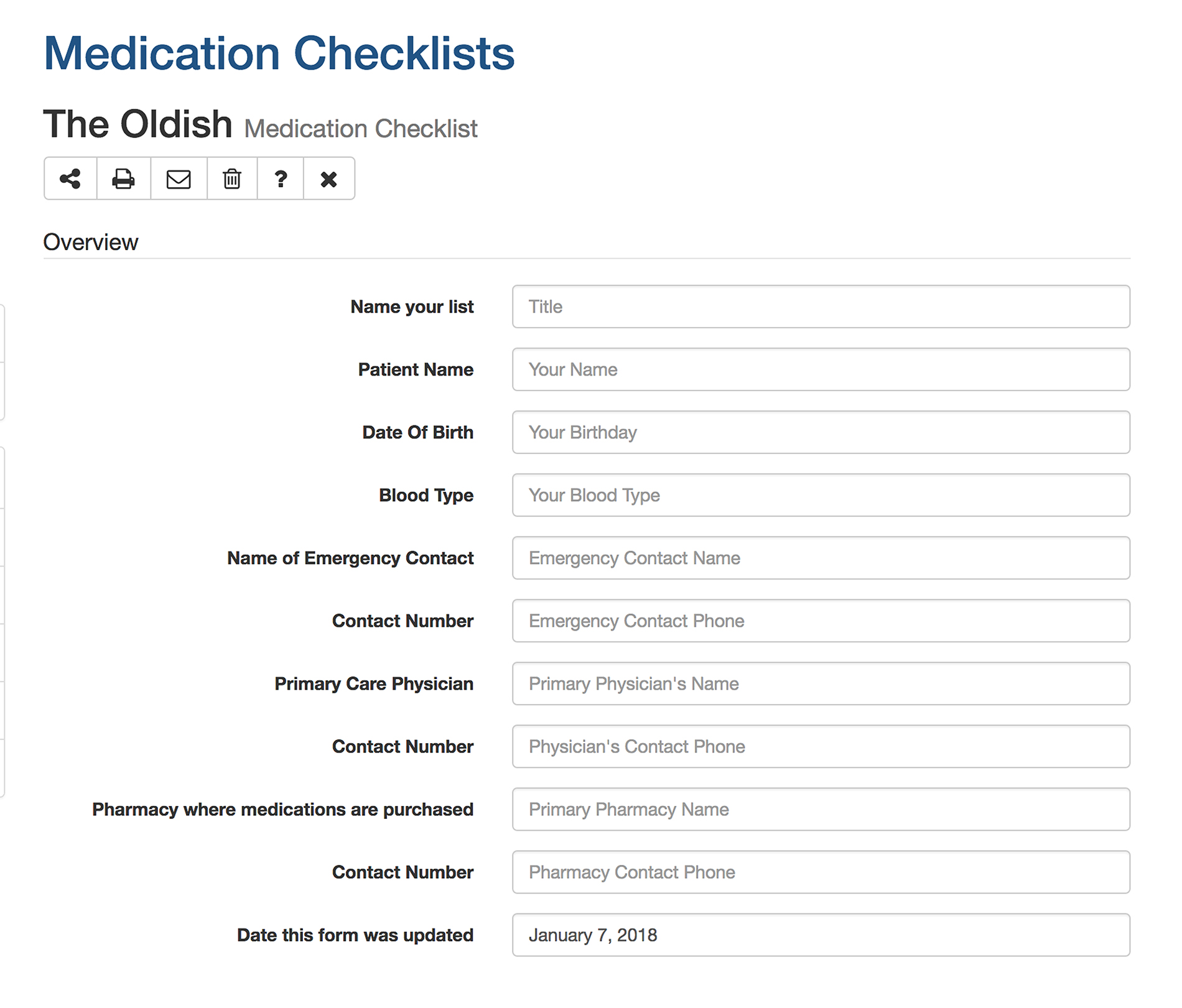Each new year brings with it the chance for a fresh start and, even if winter weather has you housebound, the perfect opportunity to make some healthy lifestyle changes. Most people will set goals related to eating better or getting more exercise but taking time to properly manage medications can also have a big impact on the well-being of older adults.
Taking stock of what medications and supplements older adults are taking each day may sound fairly straight-forward but it isn’t always the case. Seniors who have memory difficulties can find themselves in a health crisis when medications are mismanaged. Out-of-date prescriptions, misplaced drug bottles or supplements that have dangerous interactions and side effects are just some of the common problems elderly adults living alone struggle with managing their own medication dosages.
While there is no easy solution, having a trusted advocate present for doctor appointments and at the pharmacy while filling prescriptions to ask the right questions can help prevent problems. And keeping a comprehensive, up-dated list of medications posted in a visible spot in the home can be a life saver in case of a medical emergency. The Oldish offers a Medication Checklist in the Toolkit which is available with a free membership. Using a monthly medication organizer can also help eliminate or reduce medication dosing mistakes.
Studies have shown that many seniors are over-prescribed medications or supplements that offer little or no benefit but can create some serious health issues. Even something as simple as calcium and Vitamin D supplements, often taken to prevent bone loss, have recently been found to have no measurable benefit in preventing fractures among older adults. And too much calcium can cause kidney stones and contribute to heart disease. Reviewing, and if possible, reducing the number of medications seniors are prescribed can help older adults avoid dangerous interactions and drug mix-ups.
Hospitalized patients are often sent home with new prescriptions but it’s important to fill all prescriptions through a single pharmacist to avoid interactions. Older adults may also metabolize drugs differently than a younger person. Medications can accumulate in the system of an elderly adult and may eventually become toxic. While the post-holiday optimism of January lasts, make those appointments, write those lists and begin to take charge of medication management or help an elderly loved-one establish a simple system that works for them.
For a list of high risk medications for seniors published by the American Geriatrics Society follow this link.






Add Your Voice
0 Comments
Join the Discussion